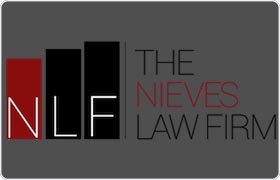 Berkeley Juvenile Law Lawyers, California
Berkeley Juvenile Law Lawyers, California
Sponsored Law Firm
-
 x
x

Click For More Info:
-
The Nieves Law Firm, APC
505 14th St. Ste. 900 Oakland, CA 94612» view mapJuvenile Law We Take The Criminal Out Of Criminal Defense
The Nieves Law Firm, APC defends people charged with criminal and civil offenses throughout Alameda, Contra Costa, Marin, Solano and San Francisco counties.
800-338-6720
Lawyers
1-2 of 2 matches
Children's Rights, Criminal, Sexual Harassment, Juvenile Law
Intellectual Property, Family Law, Juvenile Law, Civil & Human Rights



 Jo-Anna Nieves Oakland, CA
Jo-Anna Nieves Oakland, CA AboutThe Nieves Law Firm, APC
AboutThe Nieves Law Firm, APC Practice AreasExpertise
Practice AreasExpertise